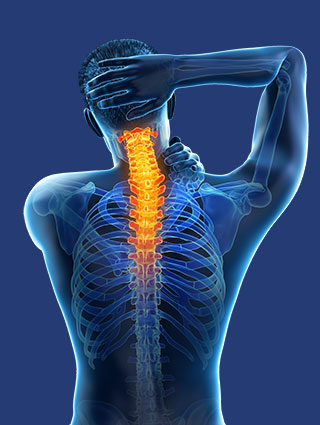
On November 21, 2012, brain imaging shows changes in the brains of people with post-concussion syndrome (PCS), according to a new study published online in the journal Radiology.
PCS affects approximately 20 percent to 30 percent of people who suffer mild traumatic brain injury (MTBI) otherwise known as a concussion -- defined by the World Health Organization as a traumatic event causing brief loss of consciousness and/or transient memory dysfunction or disorientation.
Symptoms of PCS include headache, poor concentration and memory difficulty. Conventional neuroimaging cannot distinguish which MTBI patients will develop PCS. "Conventional imaging with CT or MRI is pretty much normal in MTBI patients, even though some go on to develop symptoms, including severe cognitive problems," said Yulin Ge, M.D., associate professor, Department of Radiology at the NYU School of Medicine in New York City. "We want to try to better understand why and how these symptoms arise."
Dr. Ge's study used MRI to look at the brain during its resting state, or the state when it is not engaged in a specific task, such as when the mind wanders or while daydreaming. The resting state is thought to involve connections among a number of brain regions.
"Baseline resting state is very important for information processing and maintenance," Dr. Ge said.
Alterations in the brain resting state have been found in several disorders, including Alzheimer's disease, autism and schizophrenia, but little is known about brain resting state connectivity changes following concussion.
For the new study, Dr. Ge and colleagues used resting-state functional MRI to compare 23 MTBI patients who had post-traumatic symptoms within two months of the injury and 18 age-matched healthy controls. The MRI results showed that communication and information integration in the brain was disrupted after mild head injury, and that the brain tapped into different neural resources to compensate for the impaired function.
To find a Doctor in your area go to www.NUCCA.org or if you are in the Redwood City California area to schedule your NUCCA evaluation, click the button below:
Want to hear from people like you? Check out our reviews here.
Dr. Pete Tsiglieris of Advanced Spinal Care in Redwood City, California is an Upper Cervical Specialist trained by the National Upper Cervical Chiropractic Association (NUCCA). His upper cervical clinic also serves San Mateo, Palo Alto, Menlo Park, San Carlos, and Sunnyvale. They are uniquely trained to correct problems in the upper cervical spine (upper neck). This vital area is intimately connected to the central nervous system and problems in this area have been shown to be an underlying cause of a variety of different health problems, including migraines and other headaches, carpal tunnel syndrome, neck pain, back pain and shoulder pain and weakness. More information can be found on our website at https://bayareanuccacare.com/

